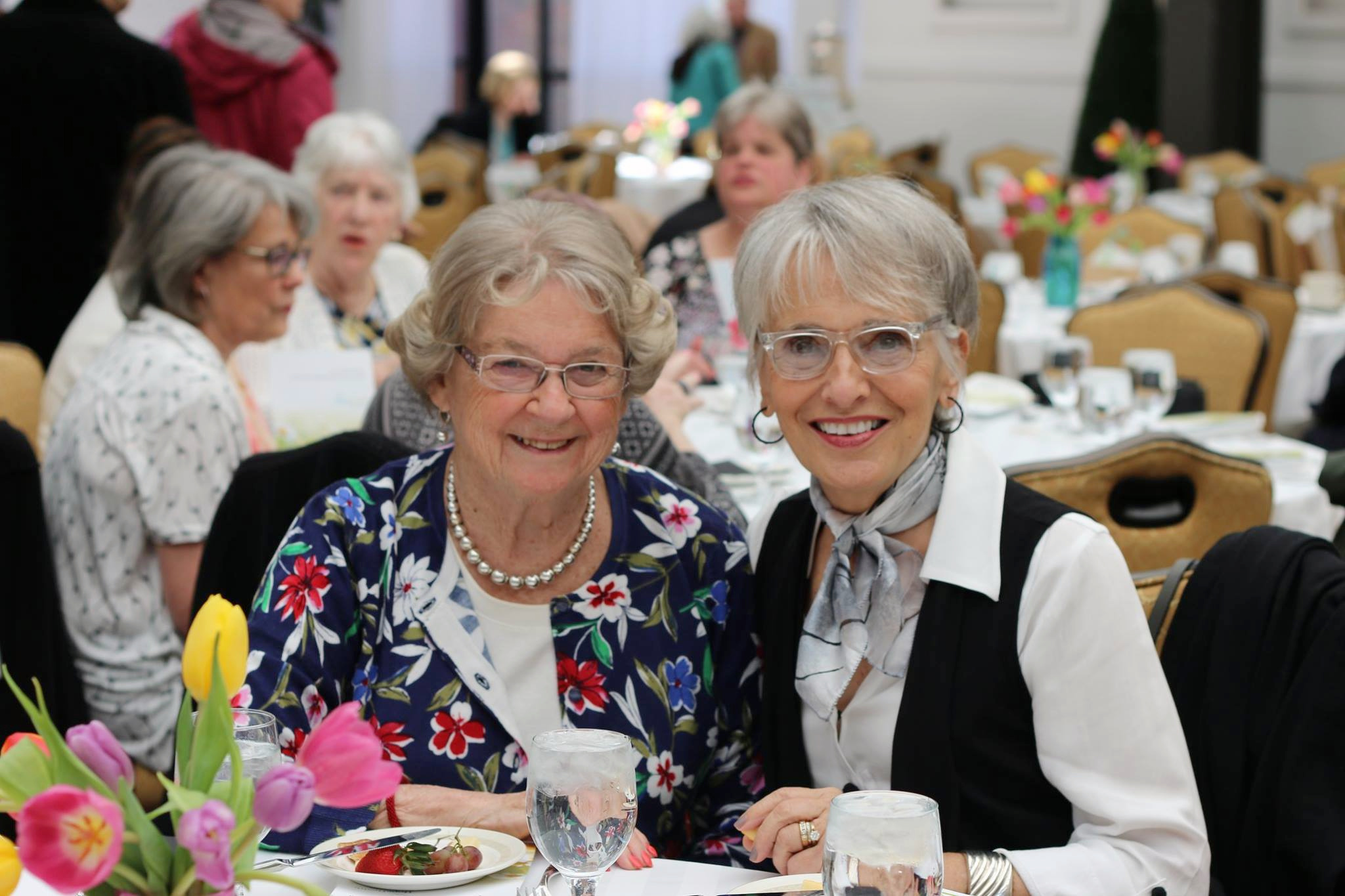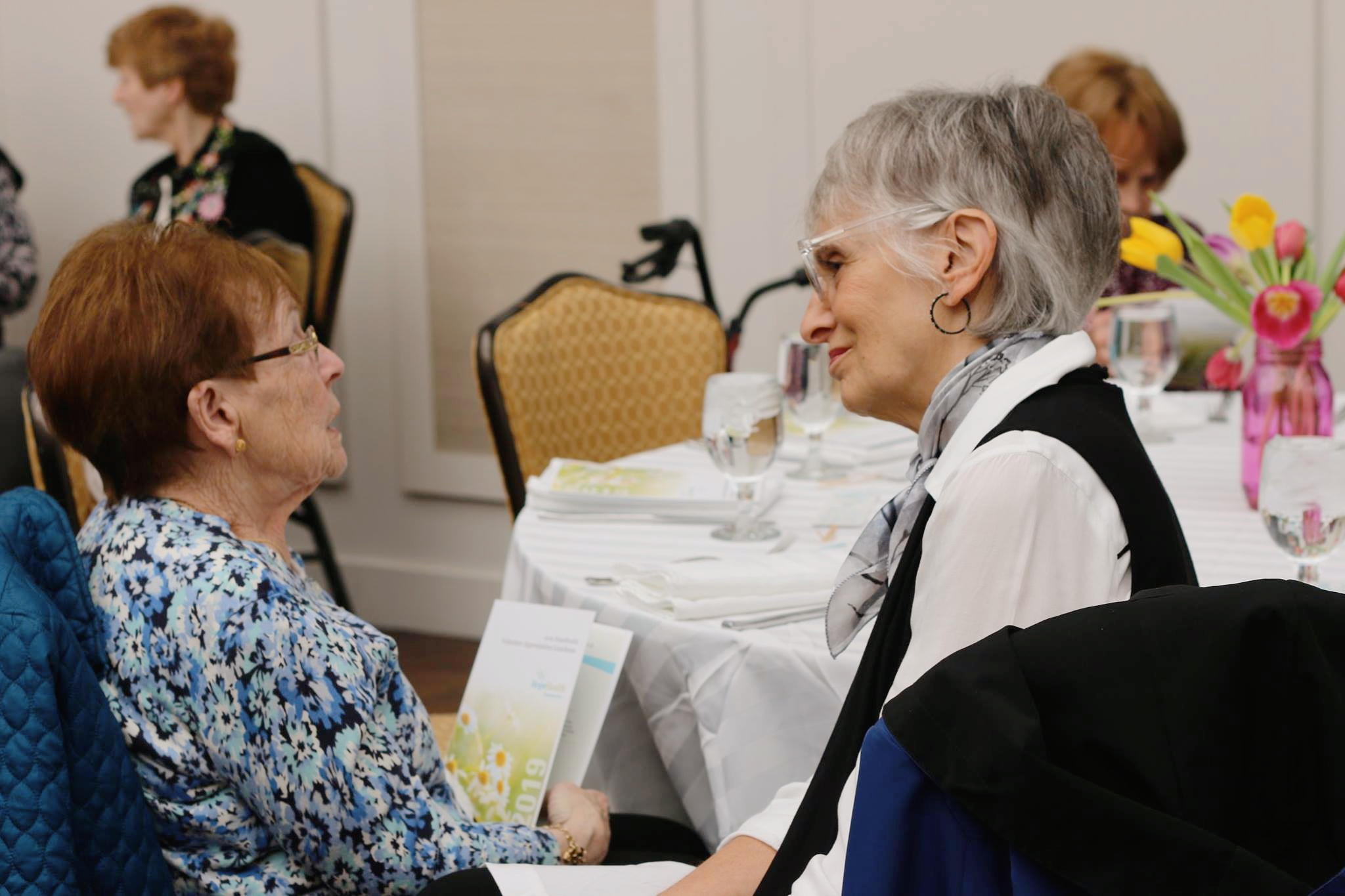As a longtime volunteer with HopeHealth, Stella already had a deep appreciation for the power of community. In fact, she’d spent years co-facilitating a grief support group, and marveled at the healing she witnessed there. But when her husband was diagnosed with Parkinson’s disease, it didn’t occur to her that she might need her own community to lean on.
Then a friend reminded her about HopeHealth’s free support groups for caregivers. One group, which meets virtually, is specifically for caregivers of individuals with Parkinson’s disease. Stella thought back to the grief group she’d facilitated.
“I said ‘absolutely’ in about a second,” Stella says. “It has been life-changing.”
> Learn about all our caregiver support
“A gift I didn’t expect”
Of course, that didn’t mean she wasn’t nervous. Logging into her first meeting, Stella remembers having butterflies in her stomach — and last-minute doubts about whether she deserved to be there.
“I worried that I wouldn’t belong somehow,” Stella says. “My husband was only diagnosed six years ago. He’s doing remarkably well. Others are much further along in their journey. I thought, ‘What if I’m not contributing enough?’”
To her relief, those worries went away the moment the meeting began. To everyone else in the group, simply being present was enough.
“Their warmth, their honesty, made me feel immediately comfortable,” says Stella.
The group meets online every other week. Conversations are sometimes sparked by a facilitator’s question, or sometimes just a natural ebb and flow depending on the group’s mood. They trade practical tips, like advice on home safety products like non-slip mats and handrails. They also talk about the less concrete challenges of being a caregiver, like the experience of anticipatory grief.
Some days, Stella has a lot to say. On others, she simply listens, offering quiet support to her fellow caregivers. Either way, she comes away feeling stronger.
“Through the group, I am learning how to deal with the challenges of this disease, and how to cope. That’s a gift I didn’t expect,” Stella says.
> Read: Tears, laughter, understanding: Inside a dementia-caregiver support group

“It’s a lifeline”
Research backs up what Stella has lived. Caregiver support groups reduce stress and loneliness, improve emotional well-being, and help people feel less alone. Caregivers in peer groups report feeling more resilient — not just because they’re getting support, but because they’re giving it.
“You see what a community is created in these groups,” Stella says. “The strength that members gain as they learn not only to cope and to survive for themselves, but to help each other.”
Sometimes that help comes in the form of information — like referrals to local Parkinson’s boxing classes, or a reminder about HopeHealth’s free educational programs for caregivers. Sometimes it’s personal, like a chance to open up about the highs and lows of caregiving over the past weeks. Always, it comes from the comfort of being with others who share a lived experience — being able to skip past explaining, and skip right to the understanding.
Stella remembers seeing this in the grief support group too: Members could relax and be honest about every part of their grief. They could trust that wherever they were on their journey, the group wouldn’t question them.
“It’s a lifeline. We all deal with things differently, and to those who haven’t been in a similar place, we may not seem to be on track,” Stella says. “There comes a time when a lot of coworkers or family members or anyone who hasn’t been through something similar may start saying, ‘OK, maybe you should be doing better by now.’ And the truth is, maybe you can’t. A support group is a place you can talk to people who say, ‘Of course you’re not over it. You’ll never be over it.’ It’s such a gift to anyone who feels that they’re alone.”
In one session, a member quietly asked, “Is anyone else lonely?” At first there was silence, as the group took in the question. Then, says Stella, “The floodgates opened. Everyone understood that feeling. That honesty created such deep connection.”
> Read: “She healed my heart”: In grief support group, a friendship blossoms
“You’ll be amazed at how much it helps”
Through HopeHealth, she’s seen how community sustains caregivers — in grief, in uncertainty, in love. And she hopes others will take that step, too.
“Even after all my years as a volunteer, I didn’t realize what it would mean to be on the receiving end of that compassion. Now I see it from both sides,” Stella says. “If you’re nervous about joining a caregiver support group, that’s okay. Just give it a try — you might be surprised. You don’t have to share anything. You can just say your name and listen. You’ll be amazed at how much it helps.”
One day, she adds, you may find you have something to say. When you do, people will understand. They’ll nod, because they’ve been there too.
The nodding, Stella says, is her favorite part.
“I call it the ‘nodding heads’ — that moment when someone shares something hard, and others start nodding. It’s powerful,” she says. “That recognition of, ‘Yes. That’s exactly how I feel too.’”

